Holistic Therapy
Massage Therapy for Addiction Recovery & Stress Relief
Anxiety and substance use can leave both body and mind feeling tense, restless, or drained. Massage therapy is designed to release that tension, reduce stress, and help your nervous system relax so healing feels possible. More than a luxury, massage is a therapeutic tool that supports physical comfort, emotional balance, and overall well-being during treatment.

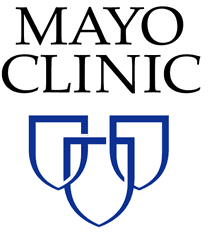

What Is Massage Therapy?
Massage therapy uses structured, therapeutic touch to relax muscles, improve circulation, and calm the nervous system. At The Haven Detox, sessions are provided by trained professionals who understand recovery and tailor each session to your comfort level.
Massage isn’t about spa indulgence—it’s about using safe, evidence-based techniques to help your body and mind work together in healing. Whether you’re dealing with muscle aches, stress, cravings, or difficulty sleeping, massage provides natural support for recovery.
Massage reduces muscle tightness, improves circulation, and eases physical discomfort that often comes with detox, stress, or long periods of emotional strain.
By lowering cortisol (the body’s stress hormone) and activating the relaxation response, massage helps quiet racing thoughts, support emotional balance, and reduce anxiety.
Massage therapy can improve sleep quality and help the body reset. Many patients find they fall asleep faster, sleep more deeply, and wake up feeling more restored after sessions.
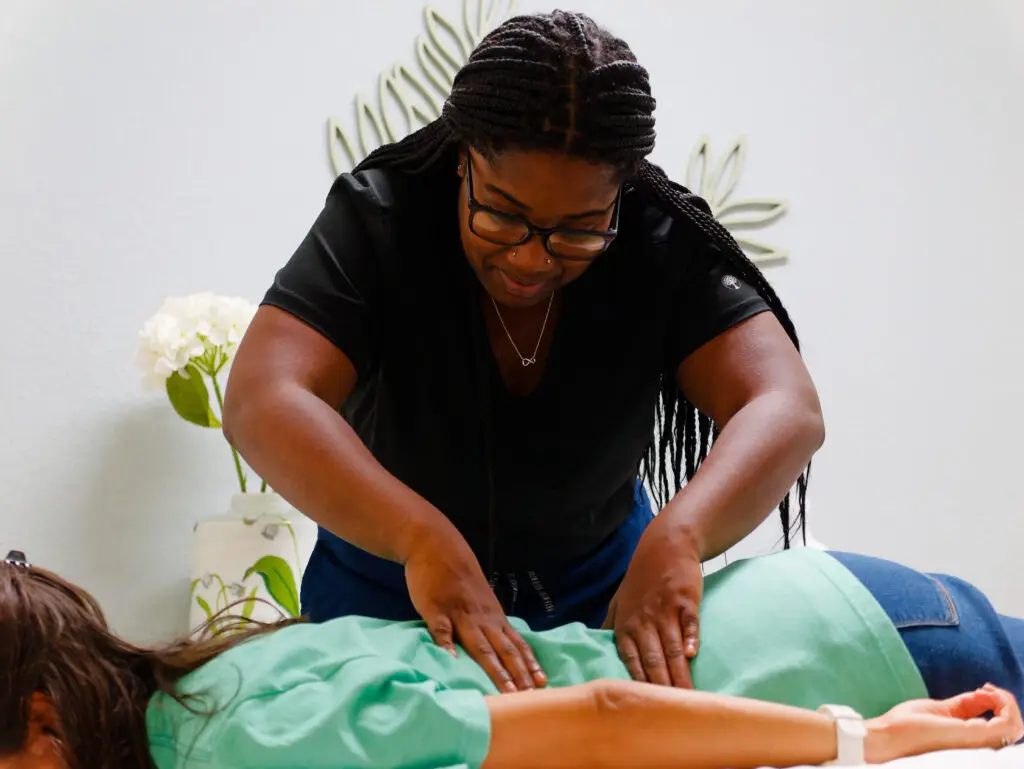
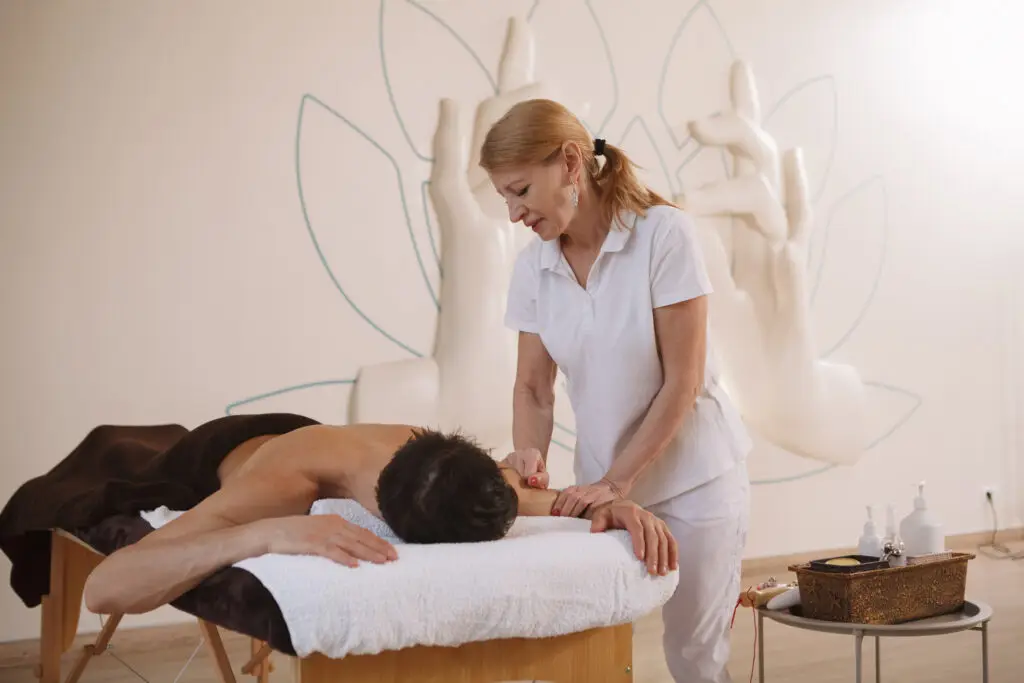
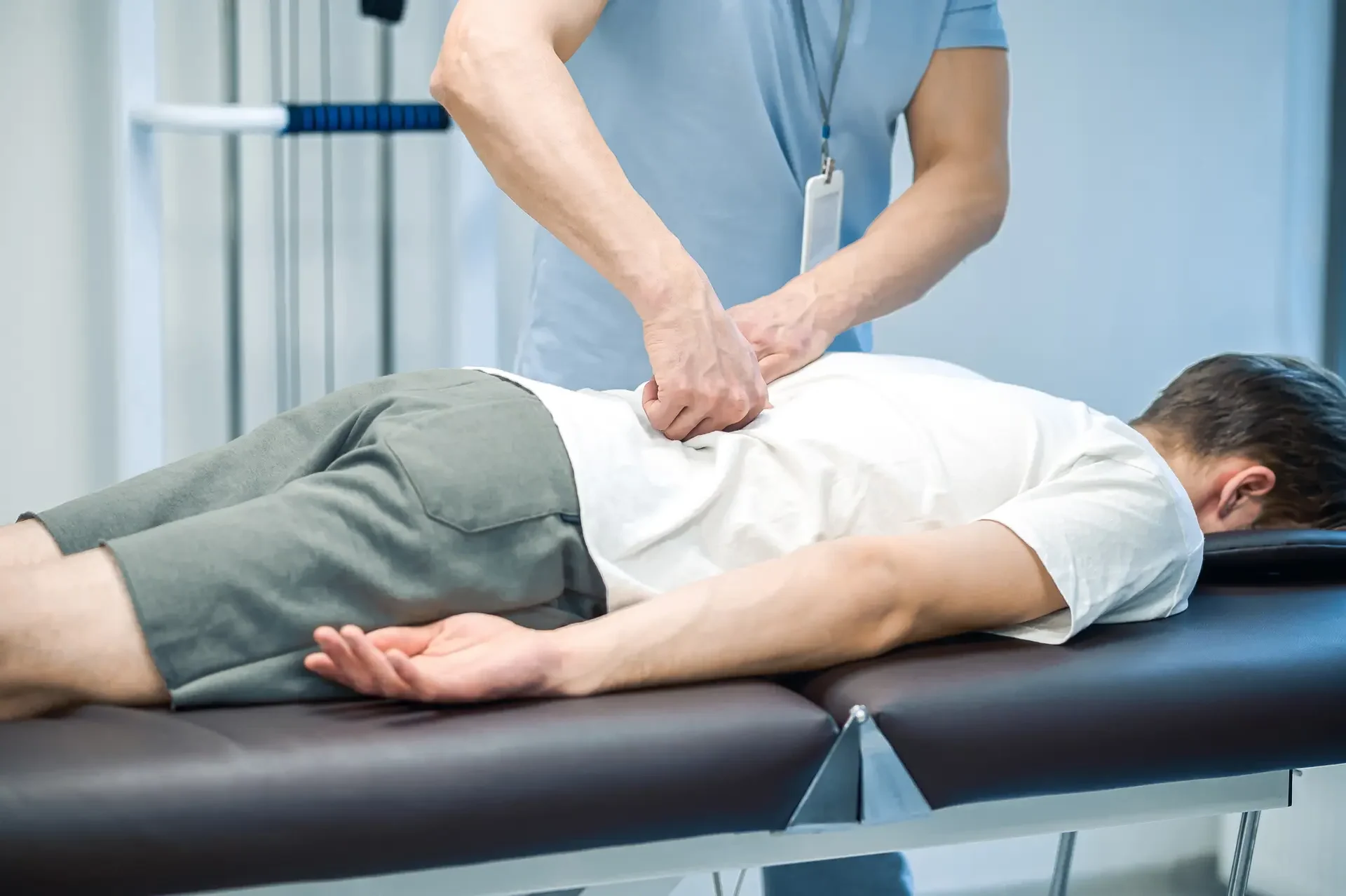
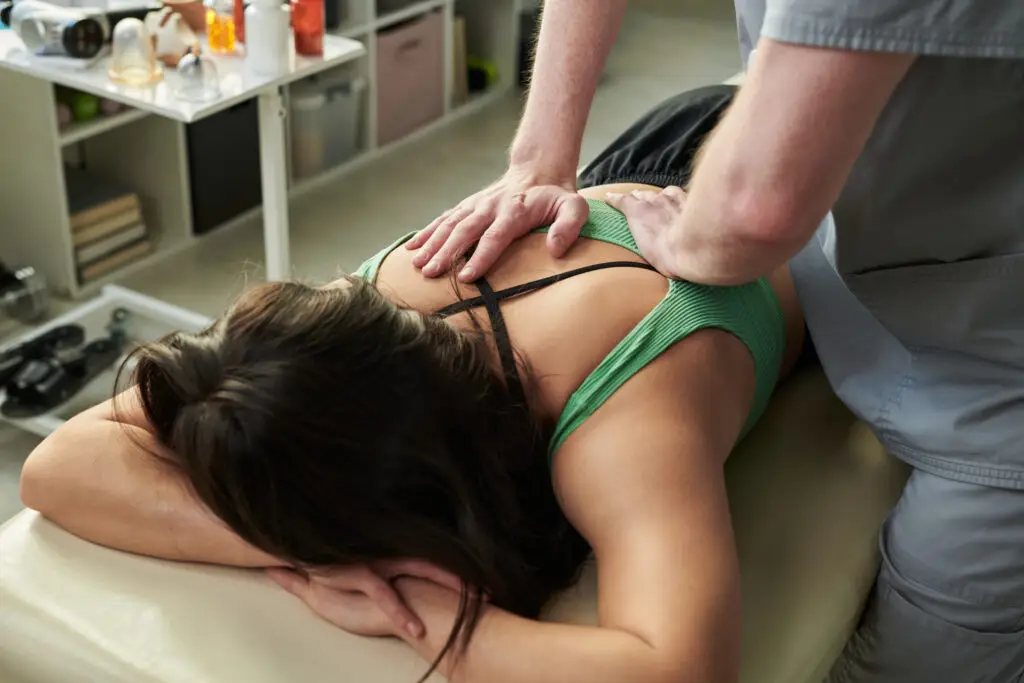
How Massage Therapy Works
Massage therapy sessions for anxiety focus on creating comfort, ensuring safety, and supporting your treatment goals.
Discuss Your Goals
A short check-in helps set the focus—easing withdrawal discomfort, reducing anxiety, improving sleep, or simply feeling grounded before group therapy.
Create a Calming Environment
You’ll lie down or sit comfortably in a quiet, low-light room. Soft music or silence is your choice, and you can pause at any time.
Tailor the Touch
Your therapist uses light to moderate pressure first, checking in often. If deeper work is helpful, pressure increases slowly and only with your consent.
Regulate and Rebalance
Techniques encourage your body’s relaxation response, which can lower muscle guarding and settle a keyed-up nervous system so counseling and groups feel easier to engage in.
Observe and Adjust
Your therapist watches breathing and body cues, adapting hand placement and pacing to keep you comfortable from start to finish.
Integrate the Experience
Before you leave, you’ll get simple tips—like stretches, hydration, or a breathing exercise—so the benefits last into the rest of your day.
Our Massage Therapy Expertise
Massage therapy at The Haven Detox is provided by licensed massage therapists who understand addiction medicine and mental health care. They coordinate with your clinical team, respect personal boundaries, and work within your treatment plan so sessions are safe, trauma-aware, and aligned with your goals. Facilities hold respected healthcare accreditations, reflecting a commitment to safety and quality.

Massage Therapist
- Nearly four decades of experience
- Founded first multidisciplinary clinic in Palm Beach
What Massage Therapy Can Help With
Headaches and Muscle Pain
Releasing tight neck, shoulder, and jaw muscles may ease tension-type headaches and everyday aches, complementing your medical care
Early Recovery Discomfort
Targeted work can reduce muscle aches, restlessness, and tension that often appear during detox or early sobriety, so you can focus on healing.
Depression and Low Energy
Improved sleep and circulation may ease heaviness in the body, making it a little easier to get moving and engage in daily routines.
Anxiety and Stress
Massage therapy for anxiety uses gentle, rhythmic techniques that lower physical signs of stress, helping you feel calmer and more present during therapy sessions.
Sleep Troubles
By downshifting the nervous system, massage can help you fall asleep faster and wake up less tense, which supports mood and focus the next day.
Care That Wraps Around You
Massage therapy fits into a broader, evidence-based program that may include individual therapy, group support, medication-assisted treatment when appropriate, family education, and wellness options like yoga or meditation. Your clinical team helps decide when to add massage so it supports your progress—not just for short-term relief, but to make the rest of treatment more effective and sustainable.
Trained Professionals
Serene Space for Relaxation
Caring for Your Physical Health
Locations Offering Massage Therapy
Choose from welcoming, private treatment centers designed for calm and comfort. Massage therapy is available at select The Haven Detox locations across several regions and can be added to your plan when clinically appropriate. Availability may vary by site, so reach out and a friendly admissions specialist will confirm current options and help you find the nearest fit for your needs.

The Haven Detox - Florida
Space Available
Insurance Accepted
Massage Therapy Offered

The Haven Detox - Arizona
Space Available
Insurance Accepted

The Haven Detox - Little Rock
Space Available
Insurance Accepted

The Haven Detox - New Jersey
Space Available
Insurance Accepted

The Haven Detox - West Memphis
Space Available
Insurance Accepted

The Haven Detox - New England
Space Available
Insurance Accepted

The Haven Detox - Puerto Rico
Space Available
Insurance Accepted
Massage Therapy Success Stories
Sean D.
Blake W.
Kasey J.
Insurance Coverage & Accessibility for Massage Therapy
Coverage varies by plan but Massage Therapy can be covered by insurance. Some Medicare Advantage and state Medicaid plans may cover it when it’s medically necessary and delivered by qualified clinicians. Many employer and individual plans only cover massage as part of a physician-directed physical therapy or rehabilitation plan, though benefits vary by policy and location. The Haven Detox offers a free, confidential benefits check before you start and will explain any out-of-pocket costs in plain language. Flexible self-pay options are available if needed.
FAQs About Massage Therapy
Is massage therapy evidence-based?
Research suggests massage therapy can help with several kinds of pain and may offer short-term relief for stress and anxiety. A 2018–2023 evidence map of systematic reviews found supportive but variable quality across pain conditions, and the National Center for Complementary and Integrative Health summarizes where the science is strongest and where it’s still emerging. These resources can help you make an informed decision.
What does a session feel like in treatment?
Expect a calm room, a short conversation about goals, and pressure that stays within your comfort level. You can speak up or pause at any time.
Can massage help during detox or early recovery?
Who provides the massage?
What if I have trauma or prefer limited touch?
How often should I schedule sessions?
Many people start with brief sessions once or twice a week during intensive treatment, then taper as symptoms improve. Your care team will personalize a plan that matches your goals and energy.
Are there times when massage isn’t recommended?
What should I wear and do after?
Wear comfortable clothing. Afterward, drink water, move gently, and notice how your body feels. A short walk or light stretching can help the benefits last.
Will it hurt?
Therapeutic massage should not be painful. You choose the pressure. Discomfort is a sign to ease up or switch techniques.
Related Treatment Options
Have Questions? Let’s Talk!
Call the free 24/7 helpline to get answers and a plan for treatment that’s best for your specific medical and insurance situation — even if it’s not with us.
24/7 Support
Need someone to talk to? We’re always here—day or night.
No Commitment
Ask questions, get guidance—no pressure, no obligation.
100% Private
Your story stays with us. Confidential support, always.

